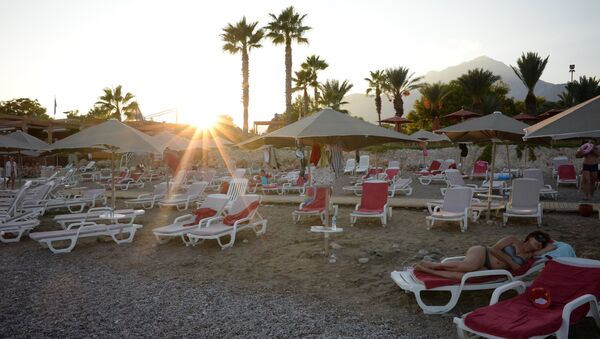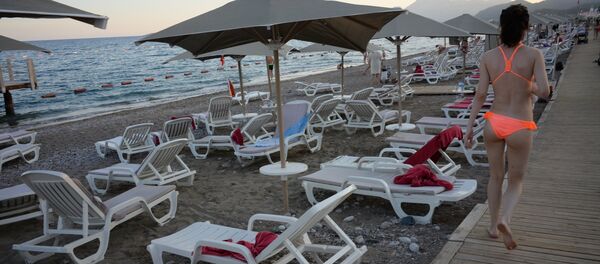The newspaper quoted him as saying that due to a recent series of terror attacks in Turkey, the number of Russian tourists has dropped to almost zero over the course of this year and a significant drop in the number of arrivals from Europe is expected, especially Germany.
"We are at a point which is much worse than what we had earlier predicted in our worst case scenario," he pointed out.
He was echoed by Yusuf Hacisuleyman, head of the Mediterranean Tourist Hoteliers’ Association, who said that "they predicted a loss of 8 billion dollars in revenue in their previous scenario, assuming a predicted loss of around 4 million tourists" after Ankara's downing of a Russian warplane in November 2015.
"With the addition of the expected losses from the European market, we have now revised our potential revenue losses to 12 billion dollars," he said.
Troubling signs for tourism industry.
— Abdullah Bozkurt (@abdbozkurt) 29 февраля 2016 г.
Decline per countries sending most tourists to #Turkey's Antalya pic.twitter.com/0EoMyDXLJJ
Cetin, for his part, noted that a whole array of hotels will be closed in Turkey this summer, and that about 100,000 job losses are expected in Antalya alone.
According to him, the tourism sector-related problems "have already started to spillover into other sectors," mainly the agriculture sector; the losses are due to become more visible by May.
Eleven terrorist attacks have taken place in Turkey this year, with the latest act of terror occurring in central Istanbul on March 19. At the time, a powerful car blast ripped through the city's busy shopping area, popular with tourists and locals, killing at least five people and injuring 36 more.




